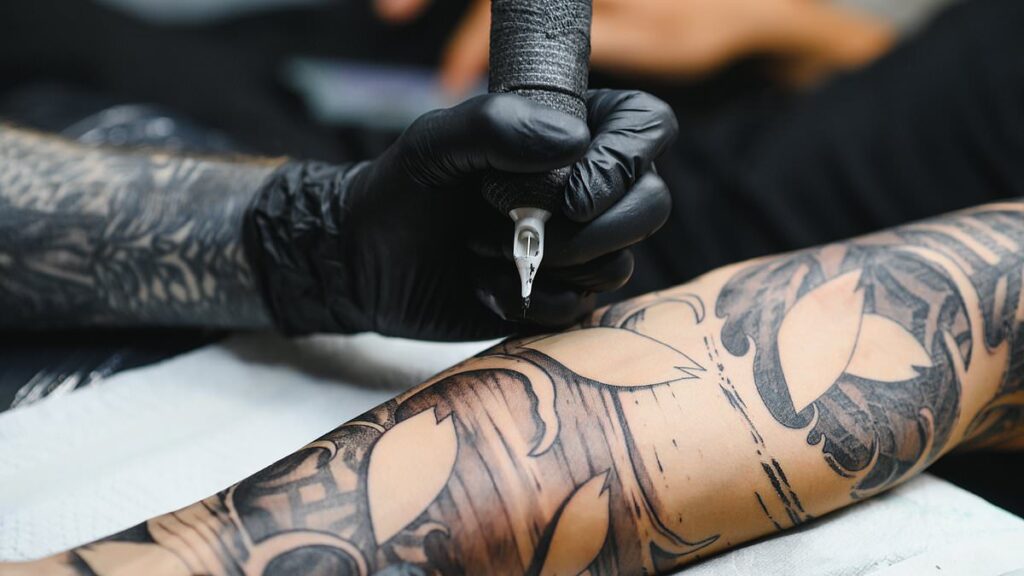An Iraqi asylum seeker has won the right to remain in Britain after claiming he was unable to return to his home country due to his tattoos.
The Kurdish man, granted anonymity and named only as AA, said he received a violent reaction from his family who felt that the skin art ‘deviated from the principles of Islam’ due to changing God’s creation.
Initially, the Home Office rejected his asylum claim on the basis he could relocate internally but, now, an asylum tribunal has ruled that he can stay and granted him refugee status.
The Upper Tribunal of the Immigration and Asylum Chamber heard that he was forced to flee Iraq after his father and uncle discovered his tattoos and even tried to burn them off his skin.
When that did not work, he later found out that the pair were intending to kill him due to dishonoring the family.
The asylum seeker told the tribunal that his brother helped him arrange a flight, including obtaining AA’s passport which was normally kept with his father.
However, he was unable to take key identity documents, including his Iraqi National Identity Card, with him, and now says he is unable to return to his homeland because such lack of documentation would put him at risk of inhumane treatment.
The Kurdish man, granted anonymity and named only as AA, said he received a violent reaction from his family who felt that the skin art ‘deviated from the principles of Islam’ due to a belief that it was changing God’s creation (pictured: stock image)
Once in the UK, AA made asylum and human rights claims but these were rejected by the Home Office in November 2023 on the grounds that he could seek state protection or relocate within the country
Once in the UK, AA made asylum and human rights claims but these were rejected by the Home Office in November 2023 on the grounds that he could seek state protection or relocate within the country.
In April 2024, the asylum seeker appealed this decision on the grounds that his father and uncle were well connected to the Patriotic Union of Kurdistan (PUK), the political party which controls the Iraqi Kurdistan Region.
This meant, he argued, that the pair would be able to find him wherever he went in the region.
He also insisted that he could not return without his identity documents which were in his father’s possession. Neither his mother or brother could obtain them due to being fearful of his father.
The First-tier Tribunal denied his case to remain in the UK, concluding that although AA’s father and uncle had been pictured with members of the PUK the state would not ‘invest substantial resources’ to find him if he left his home area and that his mother could reunite him with his identity documents.
However, in a U-turn decision, the Upper Tribunal have now granted his appeal against that decision.
Regarding the issue of the identity card, Judge Makesh Joshi found that his mother or brother would be put at risk if they helped him obtain his identity card and that without it he would be likely to experience inhumane or degrading treatment in Iraq.
In a U-turn decision, the Upper Tribunal have now granted AA’s appeal against the previous refusal to allow him to hold refugee status
Judge Joshi also decided that AA should be granted refugee status because of the risk he could be the victim of an honour crime at the hands of his father and uncle (pictured: stock image)
This was despite the Home Office arguing that the Kurdish man could ask his family to assist him as they had already helped him to get his passport.
Judge Joshi also decided that AA should be granted refugee status because of the risk he could be the victim of an honour crime at the hands of his father and uncle.
He said: ‘We further find that the appellant is a refugee.
‘[AA’s] refugee claim is based on his risk of persecution that he would be the victim of an honour crime.
‘The [First-tier Tribunal] Judge found that the appellant would be at risk in his home area for this reason given that the appellant’s father and uncle intended to harm him for dishonouring their family.
‘The Judge found that the appellant could internally relocate to avoid this risk.
‘When considering his claim under the Refugee convention, in light of our finding that [AA] would not be able to live and travel within Iraq without encountering treatment or conditions which are contrary to Article 3 of the ECHR, we find that it would be both unduly harsh and unreasonable to expect him to relocate elsewhere in the IKR or indeed within Iraq.’

